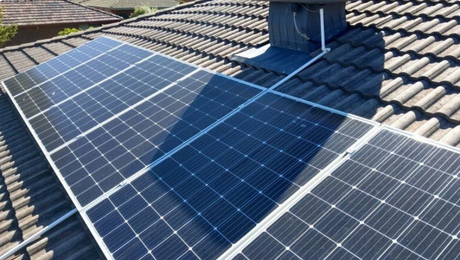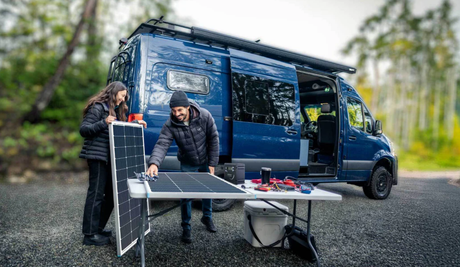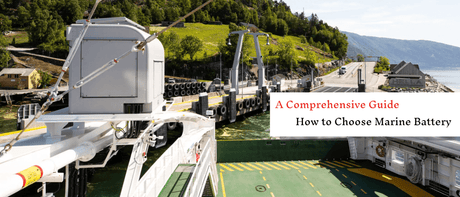How do I improve my home’s energy efficiency before going solar?
Once you decide to go solar it can be easy to get ahead of yourself. And it’s understandable. The prospect of becoming energy independent, saving money on your monthly utility costs, and living a more sustainable lifestyle are exciting things. However, before you start installing solar panels on your home, it’s important to do a little prep work to make sure your home is ready, including sizing your system, assessing your roof, and taking measures to make your home more energy efficient. These are all things that will save you and your family lots of money in the long run and will ensure you have a system that’s powerful and efficient
What should I consider before installing solar?
Before you install solar, you’ll want to do three main things
1. Conduct an energy audit to determine how you can make your home more energy efficient.
2. Off-grid solar systems (stand-alone power systems)
3. Assess your roof if you’ll be mounting panels.
Conduct an energy audit to determine how you can make your home more energy efficient.
A home energy audit is an easy and powerful way to determine where your home is losing energy and what steps you can take to improve your home’s efficiency. Audits should always be the first step before installing a system to determine how you can make sure your panels aren’t just collecting energy that’s going to be wasted to do inefficiencies within your home.
Size your system to determine what components you’ll need.
If you overbuild your system, you’ll waste thousands of dollars on capacity and components you don’t even need. If you underbuild your installation, your system won’t be able to meet your needs. The key here is to design your system with just the right amount of capacity. To achieve that we recommend using the Renogy solar panel calculator to determine what size system you should build to meet your energy needs. The solar sizing calculator allows you to input information about your energy needs and lifestyle to help you decide on your solar panels. You’ll just need to know what total watts your electronics will consume, how long you plan on running the devices, your charge controller efficiency, and average sun hours per day. The solar panel calculator will then be able to tell you the minimum and recommended system size.
Assess your roof if you’ll be mounting panels.
You’ll also want to make sure your roof is in suitable shape to hold solar panels and that it isn’t due for a replacement. If your roof is nearing the end of its lifespan, you’ll want to replace your roof before installing solar. A solar panel system will last you 30 to 35 years. If your roof is between five and 10 years from needing replacement, it’s a good idea to hire a professional to assess the condition of your roof. Every roofing material has a slightly different lifespan. As some general guidelines, clay tile, slate, and copper roofs can last up to 50 years, wood shake roofs have about a 30 year lifespan, and cement shingles last about 20 years. Replacing your roof before installing solar means you won’t have to tear everything out just a few years into having your installation, which will save you lots of money in the long run.
What is energy efficiency and why should I care about it?
An energy efficient home uses less energy to achieve the same outcomes. Energy efficient homes are often designed with their natural surroundings in mind. Its design and floor plan might take into consideration natural light, existing flora, and climate in order to reduce energy usage. Energy efficient homes will also have airtight construction, high performing windows, LED lighting, energy efficient and Energy Star-rated appliances, good insulation, and proper sealing of windows and doors.
Energy efficiency is important to consider as it reduces unnecessary energy consumption, lowers your carbon footprint and demands for non-renewable resources, and will ultimately save you thousands of dollars. When it comes to solar, it will also prevent you from having to build an unnecessarily large system.
What exactly is a home energy audit?
A home energy audit, or home energy assessment, helps you calculate how much energy your home uses, where it is losing energy, and what fixes you should prioritize to make it more efficient. Home energy auditors will conduct a thorough assessment and may use tools to detect areas of energy loss such as blower doors, surface thermometers, furnace efficiency meters, and thermographic scans.
How do I get the most out of an energy audit?
Before conducting an energy audit
- Make a list of any problem areas you know of in the house, such as drafty rooms.
- Have copies made or prepare a summary of your home's yearly energy bills.
- Know what your average thermostat settings are in the summer and winter.
What are some things I can do to make my home more energy efficient?
1. Do an energy audit! We can’t emphasize this enough. An audit will help you determine where your home is losing most of its energy and help you make some smart home improvement investments.
2.Improve insulation. This can be a big one. You could be letting out a lot of your heat in your home in the winter if you don’t have good insulation. Uninsulated attics for example can lose plenty of heat. You’ll also want to check windows and doors, and sealing up any air leaks from those points. Sealing any cracks or gaps and adding insulation can save up to 10% on home heating and cooling costs.
3.Replace your windows. Windows can also lose a lot of heat during the winter. Double pane windows are usually much better at holding in the heat better than single-pane windows and aluminum frames. You might also want to consider using thermal curtains at night and opening them up during the day when it’s sunny out to let in the natural light.
4.Upgrade your appliances. If you have older appliances in the home that you plan on replacing soon anyways, be sure to look for appliances that are Energy Star-rated. They may cost a little more upfront, but they’ll save you lots of money in the long run.
5.Install a programmable thermostat. Programming your thermostat to automatically run cooler both at night and during the day while you’re at work will prevent you from unnecessarily overheating your home.
6.Tune Up Your HVAC. Heating and cooling costs are one of the biggest expenses of home ownership. By tuning up your heating and cooling system annually, you’ll ensure your furnace and A/C are running at maximum efficiency.
7.Replace your lightbulbs. We recommend installing LED light bulbs around your home. They typically last 15 to 25 times longer and use much less energy than incandescent bulbs.
8.Change up your laundry practices. Washing machines and dryers are also big energy consumers. Wash your clothes in fuller loads and on lower settings. Also consider hang drying your clothes.
9.Use a tankless water heater. Tankless water heaters heat water directly without the use of a storage tank and provide hot water only as it is needed. This means they use much less energy than traditional storage water heaters. If you have a traditional water heater, you can also lower the thermostat to make sure you’re not wasting money heating it to a temperature you don’t even use.
Conclusion
As you can see, there’s a lot of things you can do to make your home more energy efficient. By decreasing your energy usage, you’ll also be able to build a smaller home solar installation, which will also save you money in the long run. And as we all try to do our part to live lower-impact, sustainable lifestyles, creating a more energy efficient home is money well spent.









